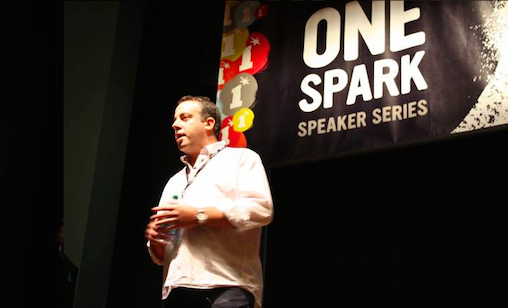When you’re about to invest in a company you ask questions; you check balance sheets; you engage in due diligence, discovery and check criminal records. You meet the team. All these things are as true for investors using crowdfunding services as it ever has been, but author Dan Marom thinks these services make it even easier to make good investment decisions.
Crowdfunding wisdom
“I think crowdfunding is a crucial toolkit for an entrepreneur,” Marom, who wrote The Crowdfunding Revolution tells the Irish Times. “It’s the democratisation of entrepreneurship.”
Kickstarter isn’t the only crowdfunding site in town, he explains, there’s peer-to-peer lending, equity, donation and reward-based funding services — many of which are included within our directory of services.
While reward-based crowdfunding can be characterised as little more than buying a product in advance, equity-based crowdfunding means much more:
“It’s very popular to say it will destroy conventional venture fundraising, but my personal view is that the future lies in a synergy,” he says.
Can’t fool all the people all the time
You see, the advantage of pointing the crowd at business ideas is that it means those ideas come under far more oversight than any individual investor can possible deliver. You have a crowd of experts taking a look, rather than just the limited number that may exist inside your investment company.
“Sometimes it’s wiser to have the crowd do due diligence,” Marom notes, and while the crowd may not have complete expertise in the business it is being asked to look at, it’s a start. “It’s not easy to fool the crowd, but it could happen,” he says.
The potential positive impact of crowd-based decision making concerning new business ventures is one thing, but there’s another consideration that should please investors: In most cases the business itself has been vetted by the crowdfunding service.
Watch the line
Savvy investors already understand this, of course, which is why so many funding rounds fall around the 30 percent to 40 percent funding mark — usually around the line at which a founder’s personally aquired funds shut down. Businesses that rise above that line are potential investments for seasoned crowd investors, as achieving this means either the idea has impressed a lot of people or the people behind the idea have figured out their marketing.
There’s more in future, of course, Marom believes that it won’t be too long now until big firms begin to crowdfund ideas: “not just funding, but also crowd-sourcing new ideas and also, crowd-sourcing execution”.
Read the whole interview here.




